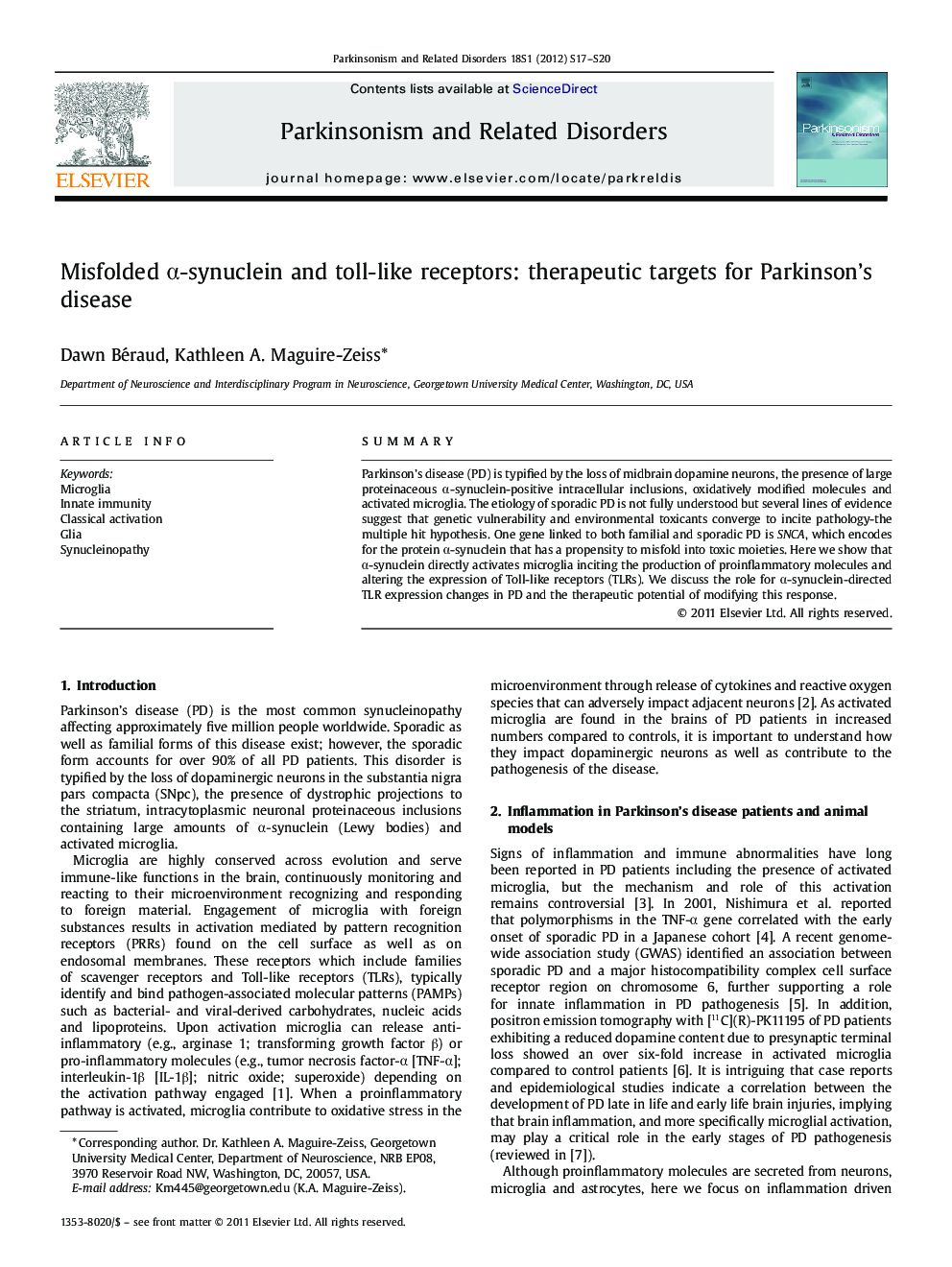| کد مقاله | کد نشریه | سال انتشار | مقاله انگلیسی | نسخه تمام متن |
|---|---|---|---|---|
| 1920812 | 1048744 | 2012 | 4 صفحه PDF | دانلود رایگان |

SummaryParkinson's disease (PD) is typified by the loss of midbrain dopamine neurons, the presence of large proteinaceous α-synuclein-positive intracellular inclusions, oxidatively modified molecules and activated microglia. The etiology of sporadic PD is not fully understood but several lines of evidence suggest that genetic vulnerability and environmental toxicants converge to incite pathology-the multiple hit hypothesis. One gene linked to both familial and sporadic PD is SNCA, which encodes for the protein a-synuclein that has a propensity to misfold into toxic moieties. Here we show that a-synuclein directly activates microglia inciting the production of proinflammatory molecules and altering the expression of Toll-like receptors (TLRs). We discuss the role for α-synuclein-directed TLR expression changes in PD and the therapeutic potential of modifying this response.
Journal: Parkinsonism & Related Disorders - Volume 18, Supplement 1, January 2012, Pages S17–S20